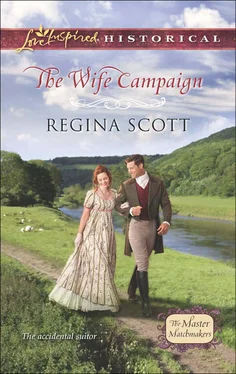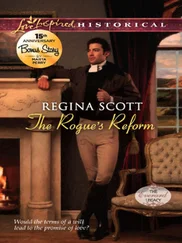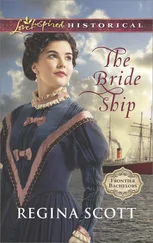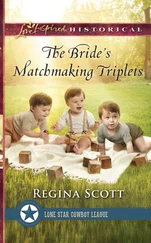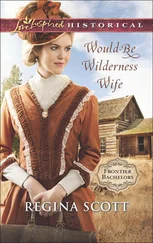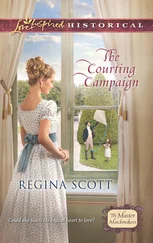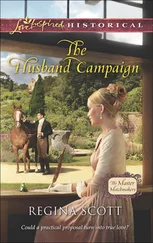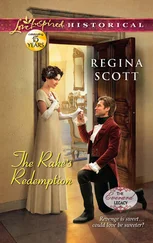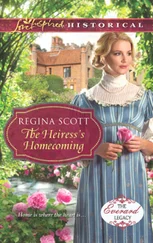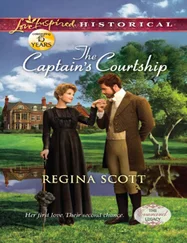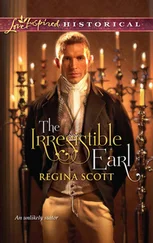The crunch of gravel and the jingle of tack told her a coach was approaching, and she could only hope it was her father’s. Sure enough, Davis brought the carriage around the bend and pulled the horses to a stop beside her and her handsome stranger, wrapping them in dust.
Her father lowered the window and scowled at them. “Leave you alone for ten minutes and look what you drag up,” he complained. “Are we hiring him or paying him off?”
Ruby’s cheeks heated as she waved her hand to clear the air. Though her father’s long face and sharp nose gave him a stern appearance, he was more bark than bite. The man beside her didn’t know that, of course, but he stepped closer to her instead of backing away in dismay.
“This man was very kind to wait with me,” Ruby explained. She turned to find her hero frowning as if he wasn’t sure he was leaving her in reliable hands. She could understand his concern. The coach was more serviceable than elegant, the team of horses unmatched except in strength. Even the two servants sitting behind looked common in their travel dirt. Nothing said that the master was one of the richest merchants in London. Her father was careful where he spent his money.
He was equally careful of her. “Well, wasn’t that nice of him?” he said. “And what did you expect in return, fellow?”
Mr. Calder inclined his head. “Merely the opportunity to be of service to a lady. If you have no further need of me, Miss Hollingsford, I wish you good day.”
“I’ll be fine, Mr. Calder,” Ruby replied, suddenly loath to see the last of him. “Know that I appreciate your kindness.”
He took her hand and bowed over it, and Ruby was surprised to find herself a bit unsteady as he released her.
Her father must have noticed a change in her, for he leaned out the window. “Calder, did you say? And your first name?”
“Whitfield, sir,” he said with a polite nod.
Her father’s narrow face broke into a grin. “Whitfield, eh? Very good to meet you, my lord.”
“My lord?” Ruby stared at him, heart sinking.
Mr. Calder, who had seemed so nice until that moment, inclined his golden head again. “Forgive me. I neglected to offer my title. I’m Whitfield Calder, Earl of Danning.”
* * *
In Whit’s experience, when a marriageable young lady was introduced to an eligible member of the aristocracy, she simpered or fawned or blushed in a ridiculously cloying fashion. Miss Hollingsford did none of those things. Her green eyes, tilted up at the corners, sparked fire, and her rosy lips tightened into a determined line. If anything, she looked thoroughly annoyed.
“Lord Danning?” she demanded as if certain he was teasing.
He spread his hands. “To my sorrow, some days.”
She turned her glare on her father. “Did you arrange this encounter?”
Her father raised his craggy gray brows. “Not me, my girl. Seems the good Lord has other plans for you.”
She did not look comforted by the fact.
Whit offered her a bow. “Forgive me for not being more forthcoming, Miss Hollingsford. I enjoy my privacy while I’m at Fern Lodge. I hope we’ll meet again under more congenial circumstances.”
“Over my dead body.” She yanked on the handle of the door. Whit offered her his arm to help her. She ignored him, gathering her skirts and nimbly climbing into the carriage. She slammed the door behind her.
“Many thanks, my lord,” her father called. “Looking forward to an interesting fortnight.”
“Drive, Davis!” Whit heard her order, and the coachman called to his team. Whit stepped away as the coach sped off back across the bridge.
Interesting woman. When he’d first seen her jump from the coach, he’d wondered whether she was in some sort of trouble. Her clothes had said she was a lady; her attitude said she was intelligent, capable and ready to defend herself if needed. The women he seemed to meet in Society were either retiring creatures so delicate that the least wrong word set them to tearing up or bold misses who angled for an offer of marriage. Miss Hollingsford’s open friendliness, without a hint of flirtation, made for a charming contrast.
But much as the intrepid Miss Hollingsford intrigued him, her father’s parting words seemed stuck in Whit’s head. An interesting fortnight, he’d said, as if he intended to spend that time with Whit. And his coach had originally been heading in the general direction of the Lodge, Whit’s private fishing retreat, shared only with his cousin Charles. Then again, Miss Hollingsford had said she was attending a house party. Could Charles have planned one?
Not if Whit had any say!
He ran back to the shore, snatched up his fishing gear and strode up the slope for the house. The road, he knew, wound around the hill to come at the Lodge from the front. The path he followed led to the back veranda and his private entrance.
His father had introduced him to Fern Lodge for the first time the summer after his mother had died attempting to bring his little sister into the world. Both were buried in the churchyard in Suffolk. Life had seemed darker and bleaker then, until the carriage had drawn up to this haven. Even now, the rough stone walls, the thatched roof, looked more like a boy’s dream of a wilderness cottage than a retreat of the wealthy. The humble exterior of the cottage orné masked its elegant interiors and sweeping passages. It had been his true home from the moment he’d entered.
These days, it was all he could manage to come here for a fortnight each summer. This was his time, his retreat, the only place he felt free to be himself.
I know You expect me to do my duty, Lord, but I’m heartily tired of duty!
He came in through his fishing closet, a space his father had designed, and hung up his rod on a hook. He shucked off his boots and breeches and pulled on trousers. He traded his worn leather boots for tasseled Hessians. The coat, waistcoat and cravat he’d have to change upstairs. Then he walked down the corridor for the entryway.
He found it crowded, with footmen in strange livery bumping into each other as they carried in bags and trunks while maids wandered past with jewel cases. His stomach sank.
His butler, Mr. Hennessy, who cared for the Lodge when Whit was not in residence, was directing traffic. A tall, muscular man who’d once been a famed pugilist before rising through the servant ranks to his current position, he had little patience with a job poorly done.
“No, the rear bedchamber,” he was insisting to one of the footmen, who was carrying an oversize case from which waved a series of ostrich plumes. “She is sharing with Lady Amelia.”
“Lady Amelia.” Whit seized on the name as the footman hurried off. “Lady Amelia Jacoby, by any chance?”
“Ah, my lord.” Hennessy inclined his head in greeting. “Yes, her ladyship and her mother are expected downstairs shortly, Mr. Hollingsford’s coach is just pulling up to the door, I believe your cousin Mr. Calder is to arrive before dinner, and the Stokely-Trents are awaiting you in the withdrawing room.”
“Are they indeed?”
His butler must have noticed the chill in his tone, for he frowned. “Forgive me, my lord. I understood from Mr. Quimby that that was your desire. Was I mistaken?”
Quimby. Peter Quimby had been his valet since Whit’s father had passed on. A slight man Whit’s age, his practical outlook and attention to detail had never failed. He knew what this quiet time at the Lodge meant to Whit. Why would he threaten it with strangers?
“No, Mr. Hennessy, you were doing your duty, as usual,” Whit assured him, heading for the stairs. “It was Mr. Quimby who was mistaken, greatly mistaken.” And he would tell the fellow that this very instant. He started up the stairs, and the footmen and maids scattered before him like leaves in a driving wind.
Читать дальше
